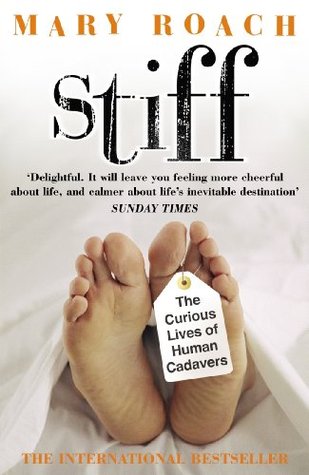More on this book
Community
Kindle Notes & Highlights
The way I see it, being dead is not terribly far off from being on a cruise ship. Most of your time is spent lying on your back. The brain has shut down. The flesh begins to soften. Nothing much new happens, and nothing is expected of you.
Death makes us helplessly polite.
They never asked, so I never told them. But I’ll tell you now. I’m a curious person.
I traveled to escape the known and the ordinary.
For those who must deal with human corpses regularly, it is easier (and, I suppose, more accurate) to think of them as objects, not people.
The life of a bacterium is built around food. Bacteria don’t have mouths or fingers or Wolf Ranges, but they eat. They digest. They excrete. Like us, they break their food down into its more elemental components. The enzymes in our stomachs break meat down into proteins. The bacteria in our gut break those proteins down into amino acids; they take up where we leave off. When we die, they stop feeding on what we’ve eaten and begin feeding on us. And, just as they do when we’re alive, they produce gas in the process. Intestinal gas is a waste product of bacteria metabolism.
The digestive organs and the lungs disintegrate first, for they are home to the greatest numbers of bacteria; the larger your work crew, the faster the building comes down.
By and large, the dead aren’t very talented. They can’t play water polo, or lace up their boots, or maximize market share. They can’t tell a joke, and they can’t dance for beans. There is one thing dead people excel at. They’re very good at handling pain.
Corpses donate blood much the way people do, except that the needle goes in at the neck instead of the arm, and the body, lacking a working heart, has to be tilted so the blood pours out, rather than being pumped.


